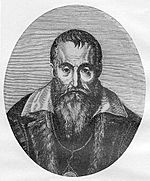Chronology facts for kids
Chronology is the study of time and how events are ordered. The word comes from two Greek words: chronos, meaning "time," and logos, meaning "study" or "word." When we talk about something being chronological, it means it follows the order in which things happened.
Imagine a timeline: it shows events exactly as they occurred, from the earliest to the latest. That's chronology in action!
What is Chronology?
Chronology is all about putting events in their correct time order. Think of it like organizing a story from beginning to end. If you list historical events, a sequence of scientific discoveries, or even the steps in a recipe, you are using chronology.
Many different fields use chronology. For example:
- History uses chronology to understand how societies and events changed over time. Historians create timelines to show when important battles, inventions, or leaders appeared.
- Geology uses chronology to study the Earth's long history. Geologists figure out the age of rocks and fossils to understand how our planet has evolved over millions of years.
When things are arranged in chronological order, it often helps us see how one event might have led to another. It makes complex information easier to understand, just like reading a book from the first chapter to the last.
Related pages
Images for kids
-
Joseph Scaliger's book De emendatione temporum (1583) helped start the modern study of chronology.
See also
 In Spanish: Cronología para niños
In Spanish: Cronología para niños
 | Chris Smalls |
 | Fred Hampton |
 | Ralph Abernathy |



